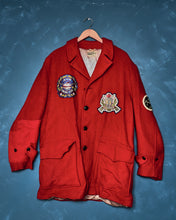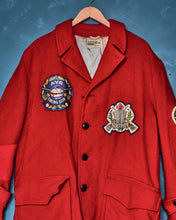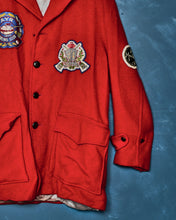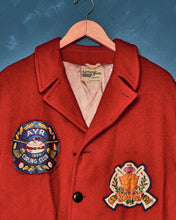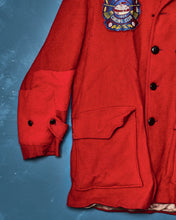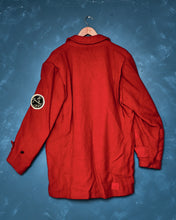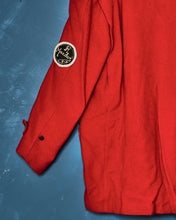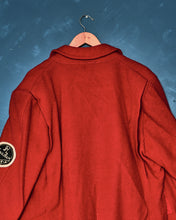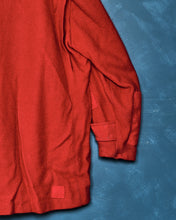
Amazing wool coat made by the Deacon Brothers in Belleville Ontario. 100% Wool. Mended and patched in store. Read more about the company below.
Flat Measurements:
Armpit to Armpit: 24"
Shoulder to Shoulder: 20"
Sleeve Length: 25"
Total Length: 34"
Head to our Sizing Guide to see if this will fit you.
*Please note, all of our items are vintage and used and will naturally have some wear. We think it all just adds to the piece’s charm. We’ll always do our best to properly document any obvious imperfections.
**Colors may vary slightly between photos on screen and actual piece.
Deacon Brothers company history:
The company's history goes way back to 1897 when WB began operating a men's wear store on Front Street while simultaneously making custom-made dress shirts at the back of his store. The demand for his shirts grew so much that in 1903, he closed his retail store and opened the Deacon Shirt Company on Coleman Street. The company manufactured military shirts during First World War and when his younger brother, Fred S. Deacon, joined him in 1914, the two continued to make shirts for the Canadian military. After many years of running the operation together and with the help of Deacon's father, Fred H. Deacon, who came on board in 1923, the company began to take a new direction towards sportswear. Deacon's father travelled to Europe and obtained Canadian licenses for Grenfell Cloth and Viyella — following which demand for the company's golf jackets and ski wear made from these fabrics grew stronger. About this time, the company's name was changed to Deacon Brothers Ltd. since the company was no longer just a shirt company.
The company moved from its original location on Coleman Street to the Front Street site, north-east of Victoria Avenue in the late '30s and to Dundas Street East in 1941. During the war years, it was here that the company became deeply involved in the design and manufacture of electrically heated flying suits for Commonwealth forces. "When the Americans entered the Second World War, they lost more men to exposure than to Japanese bullets in the Aleutian Islands. They called on the Canadian government for assistance in cold weather clothing," said Deacon. Ottawa gave the job of supplying the requested clothing to a three-man team and Deacon's father was one of them. As the hectic wartime production drew to a close in Europe, the company began producing protective outdoor clothing and sportswear. The company's products included children's snowsuits - designs modelled after a flying suit — complete with quick release zippers.
When his father died in 1958, Deacon joined the company and three years later, he bought his uncle, John Deacon's interest in the business and reorganized the firm under the name Deacon Brothers Sportswear Ltd. Boy Scouts shirts, rain coats for the Canadian Army, which were previously the company's staple products, were gradually replaced by Viyella shirts and an expansion of down-filled outerwear. His younger brothers, Don and Eric, joined him in the family operation in the 1960s and at that point the company began to focus on natural fibres, wool, cotton and down as materials in the making of its products. Significant growth continued with sales in down-filled garments with major department stores but not for too long. "In the early '80s, our department store business became more difficult as department stores began buying more and more from overseas. The independent men's wear stores began to disappear from the main streets of Canadian cities. It seemed for every step forward, we were taking two steps back," noted Deacon. Finally, the company announced its decision to drop the shirt business in 1988. The business continued as an outerwear firm until, in 1990, the building on Dundas Street went up for sale. The following year, the history of this decades old Belleville business officially drew to a close.








